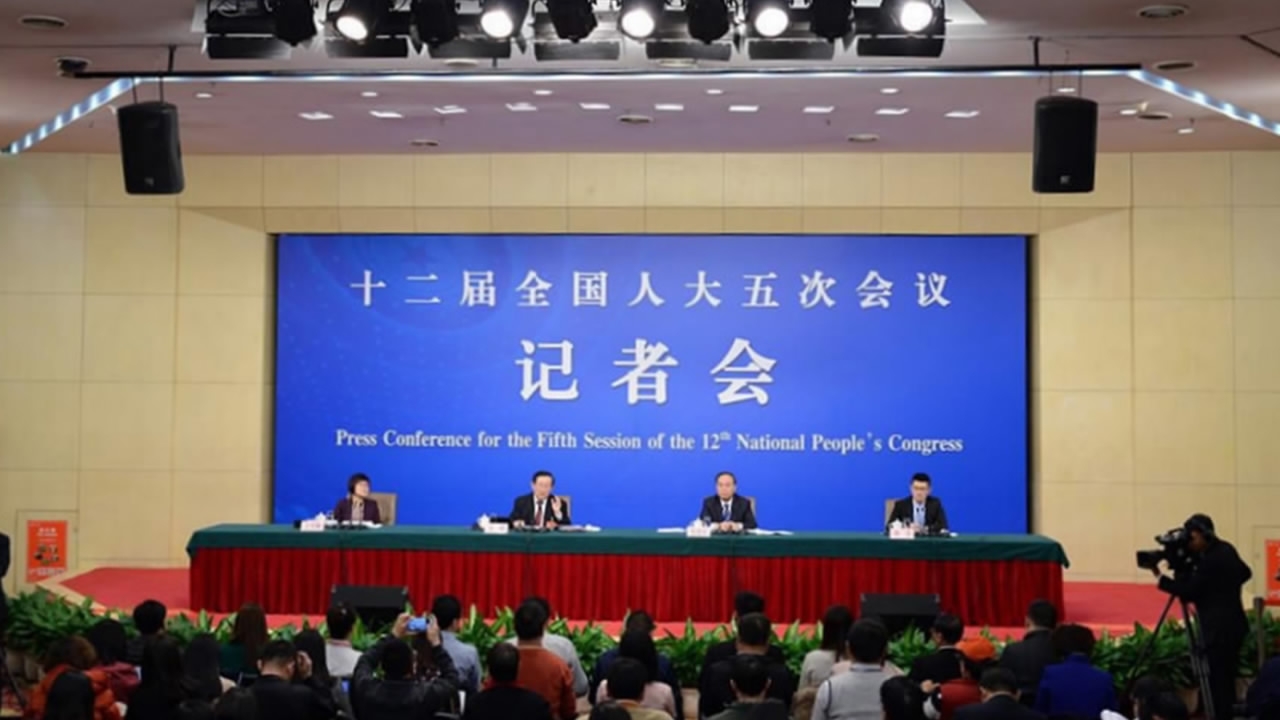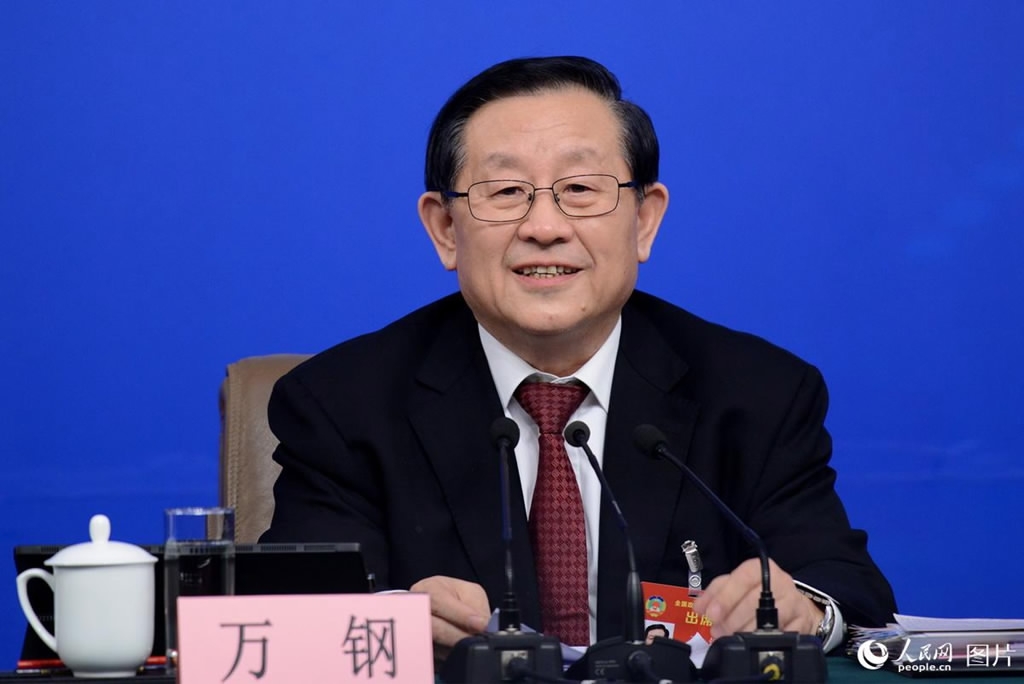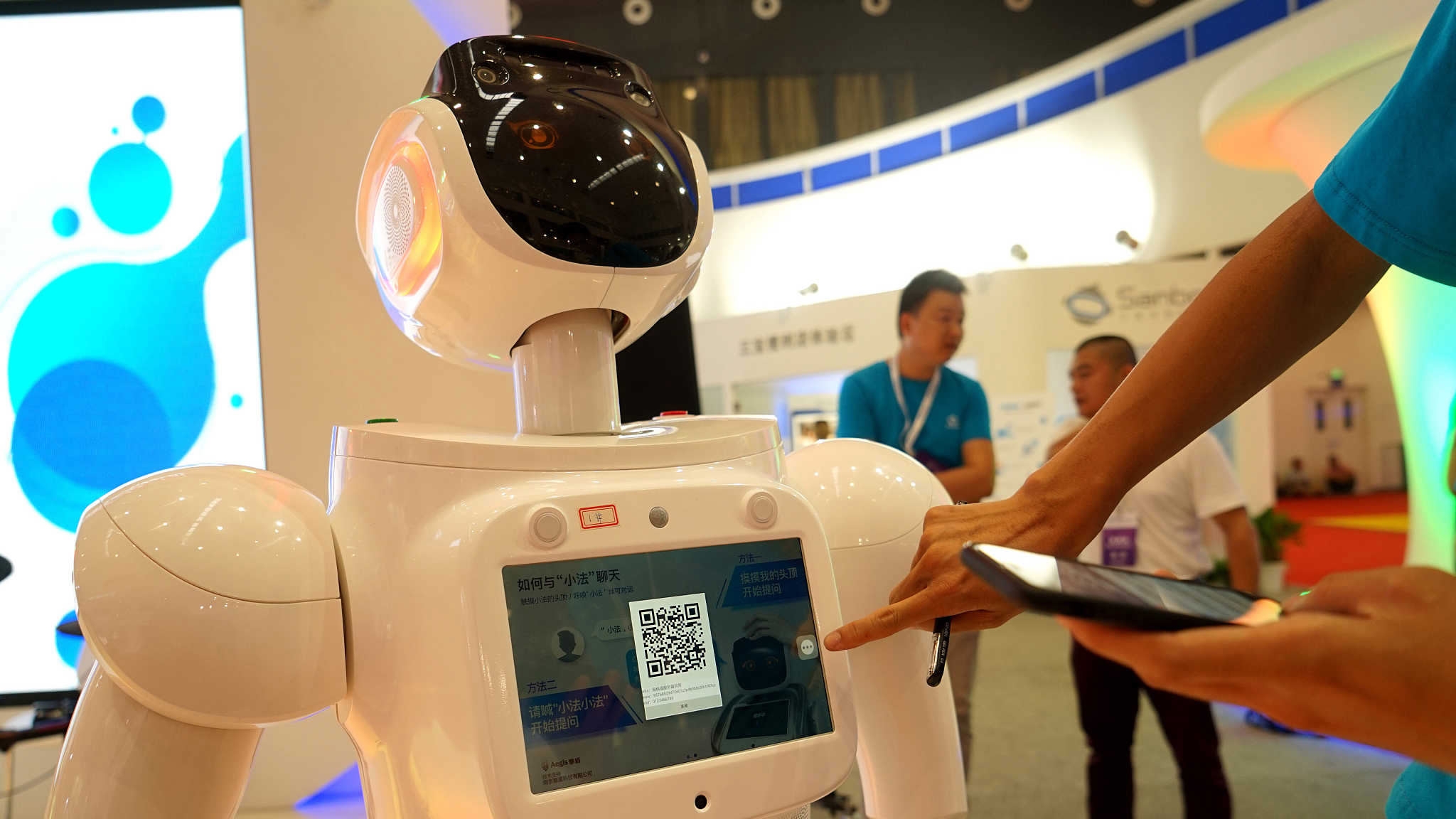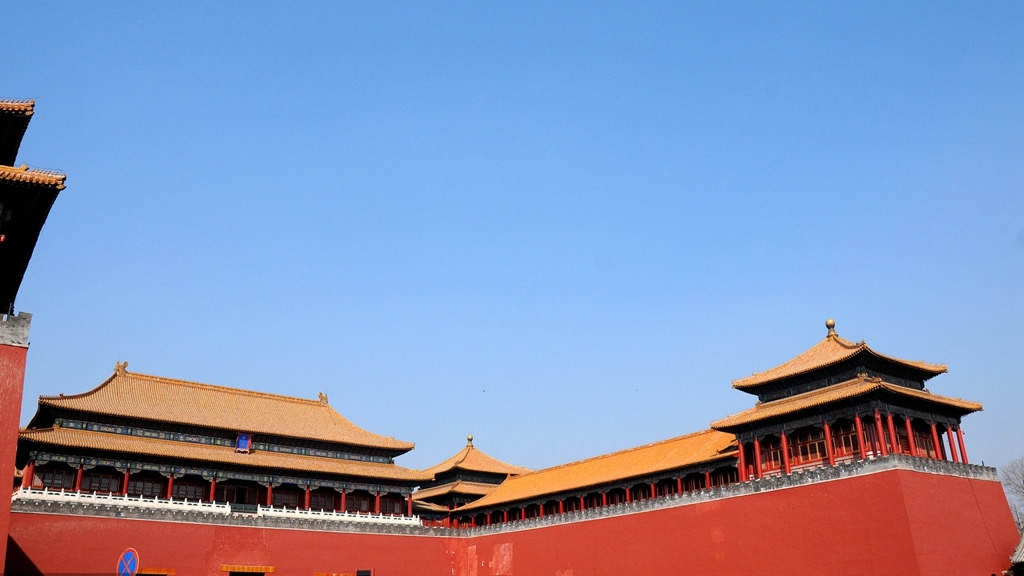
Politics
10:45, 10-Mar-2018
Ministry of Science and Technology: Innovations to continuously serve livelihood in China
By Bu Shi, Guo Meiping, Fan Yixin

A press conference on accelerating the construction of an innovative country was jointly held by Wan Gang, Minister of Science and Technology, He Defang, director-general of Department of Policies, Regulation and Supervision and Xu Jing, director-general of Department of Innovation and Development on Saturday during the first session of the 13th National People’s Congress in Beijing.

Click here to watch the rebroadcast of the live coverage of the press conference.
Wan emphasized China's key achievements in technology and science during the past five years, such as the Dark Matter Particle Explorer satellite “Wukong,” the 500-meter Aperture Spherical Telescope (FAST), quantum entanglement research, and the successful cloning of two monkeys.
Major special projects in telecommunications, new medicine, high-speed railways, renewable resources, and industries such as new-energy vehicles and artificial intelligence (AI), have provided changes in citizens' daily lives.
“Innovation in technology and science has been playing a vital role in improving the quality of life of citizens, overcoming poverty, and public healthcare,” said Wan.
Entrepreneurship and innovation policies created two billion more jobs

Wan Gang, Minister of Science and Technology /People.cn Photo
Wan Gang, Minister of Science and Technology /People.cn Photo
China’s effort to push mass entrepreneurship and innovation, collectively known as "Shuangchuang" in Chinese, has seen a 21.6 million growth in numbers of new companies since 2012.
According to Wan at the conference, two million jobs were created in last year solely thanks to the "Shuangchuang" policies.
To upgrade the implement of such policies, Wan mentioned that the collaboration across industries nationwide and internationally would be effective.
According to the minister, the nation would encourage entrepreneurship and innovation to serve the real economy, which would ultimately enhance the collaboration between the institutions, companies and entrepreneurs.

In addition, technology should be merged with financial services to better serve entrepreneurs in the future. As the language barriers between China's young generation and foreigners continue to narrow, Wan said the country would like to see more international corporations.
Furthermore, creating more incubators for entrepreneurs can also contribute to China’s innovative development and boost the economy, as Wan shared in the conference.
Since 2014 when China introduced the polices, more than 4,200 new makerspace companies have been created, serving over 120,000 start-up firms and raising over 5.5 billion yuan, or roughly 870 million US dollars.
AI can change peoples' daily lives
As one of the major focuses of the country, China has been putting efforts in AI research since the 1980s.
“We have seen important achievements in many fields,” said Wan.
The need for development plans for AI was requested by technical personnel as companies in the field are emerging in large numbers during the past years.
Ministry of Science and Technology, along with other relative divisions, have submitted development plans, which have already been released after deliberated by the State Council.
Wan emphasized the importance of establishing open source platforms of AI, so the technology can better serve people in their daily lives.
“Just like Baidu in autonomous driving, Alibaba in smart city system, Tencent in medical treatment, and iFlytek in voice recognition," said Wan.
"New technology such as facial recognition has also gradually been adopted in railway stations and airports in China."

The country will work on speeding up the process of transforming AI technologies into industrial development and everyday life to solve problems of public safety, medical care and environmental issues.
China would also prepare for challenges that could be brought by AI, such as in social ethics, employment, privacy and national security.
The nation will support domestic enterprises and organizations to enhance international cooperation, and to make contributions in key areas.
Technical innovation for healthier life

The Ministry of Environmental Protection has set up systems to counter heavy pollution in 28 regions in the country. /Photo via VCG
The Ministry of Environmental Protection has set up systems to counter heavy pollution in 28 regions in the country. /Photo via VCG
Many projects were designed to transfer technical innovations into people’s everyday life within the last decade, said Wan.
Since 2012, the nation’s “Significant New Drugs Development” project has added 54 new drugs into healthcare plan. Some 1.3 million innovative medical instruments, including robot surgeons, were utilized in hospitals across the country, serving 4.5 billion cases.
In other areas such as pollution control, the Ministry of Environmental Protection has set up systems to counter heavy pollution in 28 regions in the country. The integrated system includes 252 regular air quality monitoring stations, 38 particulate component stations, five navigation observation vehicles, 28 ground-based laser radar stations, observation satellites, and more. As of 2017, the heavily polluted days in the regions declined year-on-year by 28.8 percent.
(CGTN's Liu Yang also contributed to the story.)
7km

SITEMAP
Copyright © 2018 CGTN. Beijing ICP prepared NO.16065310-3
Copyright © 2018 CGTN. Beijing ICP prepared NO.16065310-3